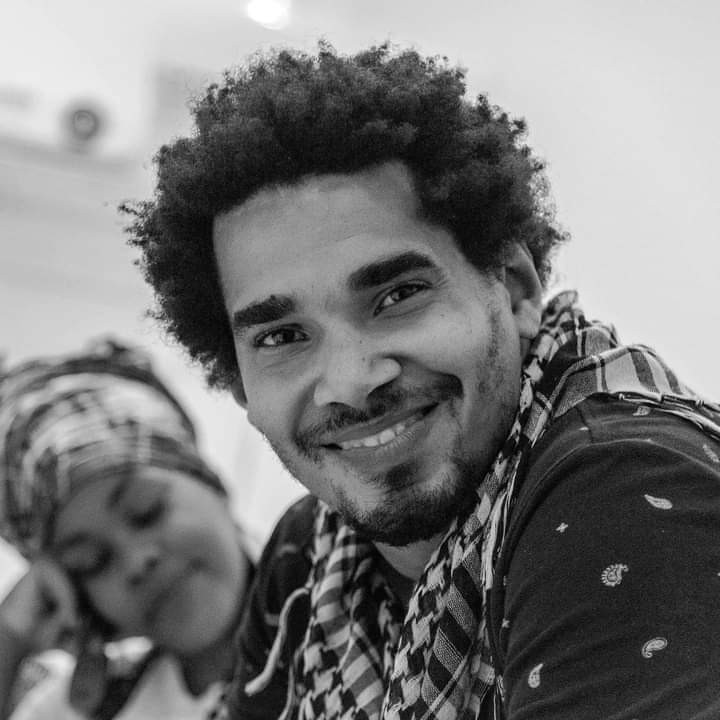Law & Politics
Two Dissident Cuban Artists Have Been Slapped With Lengthy Prison Sentences for Speaking Out Against the State
Artist Luis Manuel Otero Alcántara and Rapper Maykel Castillo will serve five and nine years in prison, respectively.

Artist Luis Manuel Otero Alcántara and Rapper Maykel Castillo will serve five and nine years in prison, respectively.

Taylor Dafoe

A Havanna court sentenced two prominent Cuban artists to lengthy prison terms today, concluding a trial that human rights organizations have called a thinly-veiled example of the state’s attempt to silence dissident voices.
Artist and activist Luis Manuel Otero Alcántara was sentenced to five years in prison for contempt, public disorder, and “insulting symbols of the homeland,” according to a statement released today by the Cuban Attorney General’s office. The announcement alluded to Otero Alcántara’s use of the Cuban flag during artistic performances, pictures of which were shared widely on social media.
Rapper Maykel Castillo was found guilty of contempt, public disorder, and “defamation of institutions and organizations, heroes and martyrs.” The latter charge relates to a meme Castillo’s posted last year criticizing communist leaders. He will serve nine years in prison.
The two creatives have 10 days to appeal their sentences, state media reported.
In a message to Hyperallergic, Otero Alcántara’s partner, curator Claudia Genlui, called the sentences “a great disrespect and an injustice.”
“They are condemning them for making art,” she said.
In a statement, Erika Guevara-Rosas, Americas director at Amnesty International, referred to the trials as a “shameful example of the human rights crisis caused by the Cuban government’s decades-long policy of repression.”
“Both Luis Manuel and Maykel are artists who have used art as a means of expressing their views on the social, political, and economic conditions in Cuba,” Guevara-Rosas continued. “They are two emblematic examples of how Miguel Díaz-Canel’s government uses the judicial system to criminalize critical voices, including through charges of alleged crimes that are incompatible with international law.”
“The trials of Luis Manuel Otero Alcántara and Maykel ‘Osorbo’ Castillo are a shameful example of the human rights crisis caused by the Cuban government’s decades-long policy of repression," said @ErikaGuevaraR https://t.co/WMLrMUXP8O
— amnestypress (@amnestypress) June 24, 2022
Otero Alcántara and Castillo are just two of the several hundreds of Cubans sentenced to prison in recent weeks for crimes related to the mass protests that rocked Havana last summer—the largest demonstrations the country has seen since Fidel Castro’s revolution in 1959.
Earlier this month, the Cuban government announced that it had sanctioned 381 people, 297 of whom were sentenced to prison terms of between five and 25 years.
A founding member of the dissident San Isidro Movement, Otero Alcántara has, for years, been outspoken in his criticism of the communist Cuban government under president Miguel Díaz-Canel.
He was arrested on his way to a Havana demonstration in July 2021 and has remained in a maximum-security penitentiary outside the capital city since. (The artist waged two hunger strikes in protest of his treatment at the facility.) Otero Alcántara was named to TIME‘s list of the 100 most influential people in the world last September.
Castillo, who goes by the stage name Osorbo, was among the co-writers of the popular protest song “Patria y Vida,” which became the unofficial anthem of the last summer’s 11J demonstrations and won a Latin Grammy award this year. He was arrested in May of last year and has remained in detention since.
The two men went before a judge in a pair of closed-door trials on May 30 and 31.
Cuban artist Coco Fusco told Artnet News in an email that the sentences “constitute a gross injustice and serve as further evidence of the lack of a rule of law in Cuba.”
“Imagine that Dread Scott, David Hammons, and Bettye Saar were imprisoned for their interpretations of the American flag,” Fusco said. “That is what has happened to Luis. Billie Holiday was punished for singing ‘Strange Fruit’ during segregation. Maykel is now punished for singing about the repression of his people by a dictatorship.”